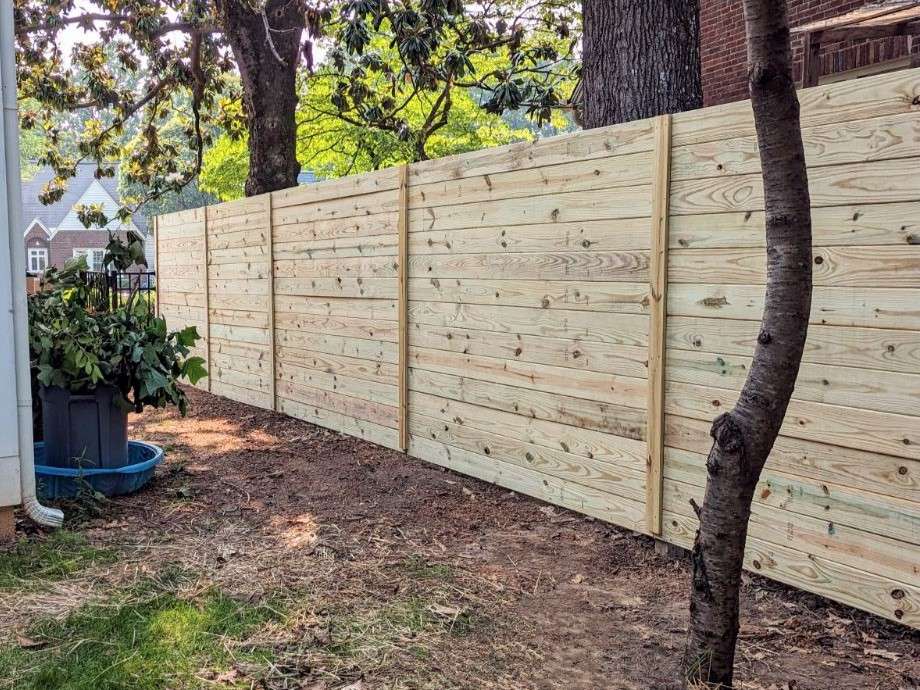All Categories
Featured
When you decide to mount a fence around your home, it's important to recognize the license demands certain to your location. While mounting a fence can appear like a basic home renovation task, regional regulations and guidelines should be followed to guarantee the installation is lawful and compliant. Failing to safeguard the appropriate authorizations can cause fines and even need you to eliminate the fence. Right here's a comprehensive take a look at the licenses you may need for fence setup.
Why Do You Need a License for Fencing Installment? A fence is even more than just a barrier between residential properties-- it can impact safety and security, residential or commercial property worth, visual appeals, and even ecological problems. Neighborhood governments require authorizations to guarantee that fences meet specific requirements and do not cause issues for utilities, neighbors, or the area in its entirety. Permits also guarantee that the installation follows zoning laws, constructing codes, and security policies.
![]()
Sorts Of Licenses You Might Need. Building Authorization. A structure permit is one of the most common authorizations required for fence installation. If you're building a fencing over a particular height (usually over 6 feet), you'll likely require a structure authorization.
Zoning Permit. A zoning license guarantees your fencing conforms with height, area, and obstacle laws. Fences might need to be set back a certain range from walkways, roads, or residential or commercial property lines to stop blockage or interference with utilities.
HOA Authorization. You might require to look for authorization prior to mounting a fence if your building is part of a property owners organization (HOA) HOAs generally have standards that control the appearances and framework of fencings to ensure they are in harmony with the neighborhood. You could need to submit your prepare for approval, and the HOA might limit fencing style, height, or product.
Specialty Permits. In some locations, there may be added authorizations needed for certain scenarios. If your fence is near a safeguarded ecological location or located in a flood area, you may require to get specialized licenses related to ecological influence. Similarly, if the fence is in an area with underground energies, you may require to obtain clearance to stay clear of destructive pipes or wires.
![]()
Easement or Energy Company Consent. Prior to installing a fence, it's critical to check whether the residential property includes an easement, such as an energy easement, which could affect where you can position your fence. Easements are locations of land designated for public or private energies, and you might require approval from the utility firm or various other authority to develop within this location.
How to Find Out What Permits You Need. To make sure that you're complying with all the required laws, right here's just how you can identify the specific permits required for your fence setup:
![]()
Go To Your City Government Workplace: The initial step is to check with your local building or zoning department. Several cities and counties have standards offered online that define what sorts of authorizations are needed for fencing setup. Otherwise, checking out the office or calling personally can aid clarify the procedure. Check Your City's Web site: Numerous towns supply details regarding fencing setups and the authorizations called for via their main web sites. Some websites even allow you to send applications on the internet. Speak With a Fencing Installation Professional: If you're not sure about regional policies, a professional fencing service provider can assist. They know with the allowing process and can direct you via the actions. The Repercussions of Not Getting a License. Falling short to protect the essential permits prior to mounting a fencing can result in considerable repercussions. You might be fined or called for to get rid of the fencing entirely.
Final thought. Setting up a fencing around your home can add both protection and aesthetic charm, but it is essential to guarantee you're following the lawful action in the process. Researching the specific license requirements for your location, including structure licenses, zoning guidelines, HOA authorization, and energy consents, will certainly help guarantee your fencing setup goes smoothly. Putting in the time to understand these needs now can save you from pricey mistakes and potential legal issues down the line.
Why Do You Need a License for Fencing Installment? A fence is even more than just a barrier between residential properties-- it can impact safety and security, residential or commercial property worth, visual appeals, and even ecological problems. Neighborhood governments require authorizations to guarantee that fences meet specific requirements and do not cause issues for utilities, neighbors, or the area in its entirety. Permits also guarantee that the installation follows zoning laws, constructing codes, and security policies.

Sorts Of Licenses You Might Need. Building Authorization. A structure permit is one of the most common authorizations required for fence installation. If you're building a fencing over a particular height (usually over 6 feet), you'll likely require a structure authorization.
Zoning Permit. A zoning license guarantees your fencing conforms with height, area, and obstacle laws. Fences might need to be set back a certain range from walkways, roads, or residential or commercial property lines to stop blockage or interference with utilities.
HOA Authorization. You might require to look for authorization prior to mounting a fence if your building is part of a property owners organization (HOA) HOAs generally have standards that control the appearances and framework of fencings to ensure they are in harmony with the neighborhood. You could need to submit your prepare for approval, and the HOA might limit fencing style, height, or product.
Specialty Permits. In some locations, there may be added authorizations needed for certain scenarios. If your fence is near a safeguarded ecological location or located in a flood area, you may require to get specialized licenses related to ecological influence. Similarly, if the fence is in an area with underground energies, you may require to obtain clearance to stay clear of destructive pipes or wires.

Easement or Energy Company Consent. Prior to installing a fence, it's critical to check whether the residential property includes an easement, such as an energy easement, which could affect where you can position your fence. Easements are locations of land designated for public or private energies, and you might require approval from the utility firm or various other authority to develop within this location.
How to Find Out What Permits You Need. To make sure that you're complying with all the required laws, right here's just how you can identify the specific permits required for your fence setup:

Go To Your City Government Workplace: The initial step is to check with your local building or zoning department. Several cities and counties have standards offered online that define what sorts of authorizations are needed for fencing setup. Otherwise, checking out the office or calling personally can aid clarify the procedure. Check Your City's Web site: Numerous towns supply details regarding fencing setups and the authorizations called for via their main web sites. Some websites even allow you to send applications on the internet. Speak With a Fencing Installation Professional: If you're not sure about regional policies, a professional fencing service provider can assist. They know with the allowing process and can direct you via the actions. The Repercussions of Not Getting a License. Falling short to protect the essential permits prior to mounting a fencing can result in considerable repercussions. You might be fined or called for to get rid of the fencing entirely.
Final thought. Setting up a fencing around your home can add both protection and aesthetic charm, but it is essential to guarantee you're following the lawful action in the process. Researching the specific license requirements for your location, including structure licenses, zoning guidelines, HOA authorization, and energy consents, will certainly help guarantee your fencing setup goes smoothly. Putting in the time to understand these needs now can save you from pricey mistakes and potential legal issues down the line.
Latest Posts
Uncover Exceptional Car Repair Services offered by Montclare Auto Repair – Reliable Repairs Await
Published May 28, 25
1 min read
Discover Your Wyoming Banking Partner – The Key to Better Banking in Wyoming
Published May 27, 25
1 min read
Discover WyHy FCU – Top Benefits for Your Financial Success
Published May 24, 25
1 min read
More
Latest Posts
Uncover Exceptional Car Repair Services offered by Montclare Auto Repair – Reliable Repairs Await
Published May 28, 25
1 min read
Discover Your Wyoming Banking Partner – The Key to Better Banking in Wyoming
Published May 27, 25
1 min read
Discover WyHy FCU – Top Benefits for Your Financial Success
Published May 24, 25
1 min read